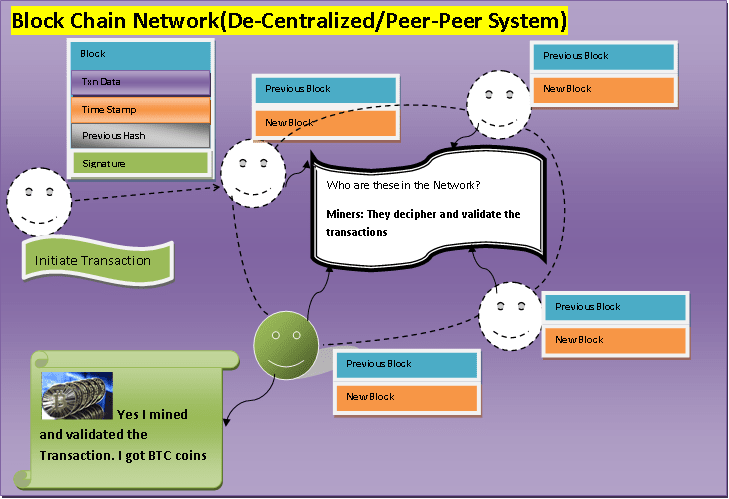The Classical Ledger has been there for many generations and would still be there until the complete Digitization across every walk of life takes over.
What is a Ledger?

Basically, Ledger is a Recording system to capture any type of transactions that involves 2 or more parties(individuals/organizations/countries/others). In Traditional Way it's been a Manual Ledger system storing transactions in Physical books/Documents. The transactions were entered manually and signed by the parties involved and InCharge to confirm the transaction. Then the Digitization of the Records in the Computer through Data Entry/Automation and an Centralized server to Store and manage the same helped to reduce the Paper-based approach and minimize errors and put in place an accountable system.
Some of the common applications of it can be observed in the following scenarios,
- Financial Transactions (Credit,Debit,Transfer and others)
- Legal Transactions (Such as Property/Infrastructure Contracts, Deeds and Mortgages/Loans)
- Inventory Transactions (Keep Record of Stocks, Purchases/Sales...etc.)
- Statistical Transactions (Statistics With respect to Countries Population, Economy, Infra. Projects, Education, Healthcare, Food Distribution and other welfare areas...This could also be done on Regional/Organization/Individual level as per the Scale)
- Healthcare Transactions (Hospitals managing the medical conditions of patients for current and future purpose.)
- Educational System (Track Student's Progress, Teacher's Performance/Rating, School's Academic & Placement results...etc.)
Where does the Digital Ledger fit in this environment?
Digitization has optimized the process of Ledger by reducing Manual errors, improved speed and reducing data loss but still there are some restrictions/issues that still prevail to have a better system. Some of the Concerns that arise from the current Digital system are,
- Central Authority - The Ledger Managing Organization (Banks/Schools/Corporations/Governments) normally has the complete control over the Transaction, and this creates a chance of single point of failure and the security risk associated with it)
- Transparency - The Need of the Transaction being completely transparent to end-user is only determined by the single entity and it's highly probable that the Rejection/Approval of the Transaction lies at the onus of that single entity. So, it's difficult for the end-user to verify the accuracy of the transaction and the data associated with it.
- Security - With Single Entity managing the Transactions of multiple parties involved, there is higher chance of Fraud/Intrusion activities by hackers/miscreants and get sensitive information about the users (For ex: Bank handling millions of customers, Schools handling 100's of Students and Teachers information, Hospital handling 1000s of Patient Records).
Let's see the current Banking system that handles financial transactions online,

How Blockchain Provides its own solution?

As with the traditional Banking System, there is a Centralized Authority to approve every transaction that the customer initiates and there is a transactional/service fee associated and also within guidelines of the Central Authority. On the contrary, a Blockchain-based system is a decentralized network where no one party administers, and all the Nodes involved in the blockchain network verify and validate the transaction (Proof of Work) for it to be fully accepted. So, this brings down the transactional cost, aids faster payments, brings more transparency, provides better interoperability, and also could improve security. Since there are Private and Public banks and a long legacy of handling customer accounts and transactions, it is important to analyze all factors and constraints before fully adopting to Blockchain.
Some areas, where Blockchain technology is used/or currently in implementation as an alternative are around the following and much more.
Payments through digital currencies (bitcoins...etc) to facilitate faster payments with lower transactional fees
Loan verification & disbursement without the need for intermediaries and improve the security in borrowing money.
KYC handling to transfer customer records safely around financial institutions.
Securities markets (Stocks, bonds) to improve the interoperability and transparency among the trading parties.
this is not an exhaustive list and more such areas blockchain could aid partly/completely and provide a more robust banking experience in the future.
Do share your comments/feedback...In successive articles, we will discuss more about the blockchain process of transaction handling and its various categories as well.







Top comments (0)